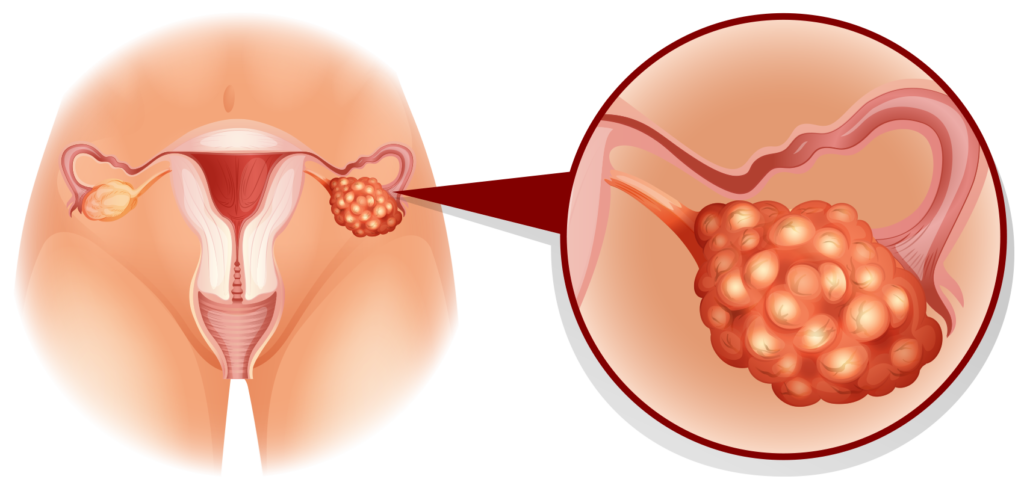Polycystic ovary syndrome (PCOS) – Symptoms, causes and Cure
Polycystic ovary syndrome (PCOS) is a common hormonal disorder that affects women of reproductive age. It is characterized by a range of symptoms including irregular periods, elevated levels of androgen hormones (such as testosterone), and the presence of multiple small cysts on the ovaries. The exact cause of PCOS is not fully understood, but it is believed to involve a combination of genetic and environmental factors.
Health problems with PCOS
It is a hormonal disorder that can lead to a range of health problems. Some of the most common health problems associated with PCOS include:
Irregular periods: PCOS can cause irregular menstrual cycles or even stop menstruation altogether.
Insulin resistance: PCOS is associated with insulin resistance, which can increase the risk of developing type 2 diabetes.
Weight gain: Women with PCOS may have difficulty losing weight or may gain weight more easily, which can lead to other health problems such as high blood pressure and heart disease.
Infertility: PCOS can make it more difficult for women to conceive due to irregular ovulation or lack of ovulation.
Excess hair growth: Women with PCOS may experience excess hair growth on their face, chest, or back, as well as male-pattern baldness.
Acne and oily skin: PCOS can lead to an increase in acne and oily skin due to higher levels of androgens, or male hormones.
Sleep apnea: PCOS is associated with an increased risk of sleep apnea, a sleep disorder characterized by pauses in breathing during sleep.
Treatment of PCOS
It is a hormonal disorder that affects many women of reproductive age. There is no cure for PCOS, but there are several treatments that can help manage the symptoms and improve overall health. Treatment options may include:
Lifestyle Changes: This includes maintaining a healthy weight, regular exercise, and a balanced diet to help manage insulin resistance.
Medications: Birth control pills can help regulate menstrual cycles and reduce symptoms like acne and excess hair growth. Other medications, such as Metformin, can help manage insulin resistance and improve fertility.
Fertility Treatments: For women trying to conceive, fertility treatments such as Clomiphene or Letrozole may be prescribed to help stimulate ovulation.
Surgery: In some cases, surgery may be recommended to remove cysts on the ovaries.
It is important to note that the most effective treatment plan will vary from person to person, and will depend on individual symptoms and medical history. It is recommended to consult with a healthcare professional to determine the best treatment plan for PCOS.

